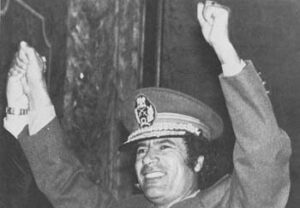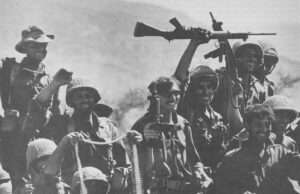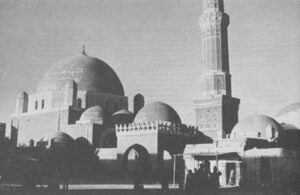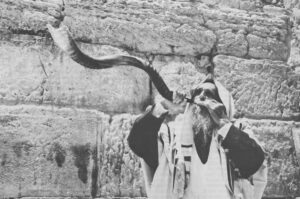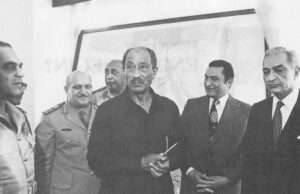This article was written before the seizure of the United States Embassy in Teheran by student followers of the Ayatollah Khomeini.
Some time ago, writers adopted the convenient habit of categorizing Arab states as “moderate” and “radical.” For the most part, the distinction was based on the degree of animosity expressed toward Israel. Algeria was “radical” because its leaders were strident, though it probably gave nothing to the support of the PLO. Kuwait was “moderate,” because it spoke of peace; though it helped finance the PLO’s fighting organizations. Now we know that, if these categories had any utility at all, they are no longer valid. The distinctions are far too narrow. If we insist upon dividing the Arabs into two camps I think we must try to measure not just their attitude toward Israel but toward the Western world as a whole.
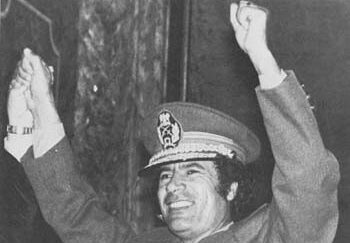
The test of whether a state is to be classed “moderate” or “radical” should, I think, be based on the degree of Islamic militance, which it demonstrates. I know that some will disapprove of this test. It smacks of religious discrimination, or at least of secular condescension, which is considered an unenlightened attitude by twentieth century liberal standards.
But the fact is that Islam, like Christianity, is a religion with a strong self-righteousness and an inherent missionary dynamism. Like Christianity, it also has a worldview, but professed Christians at the present stage of history seem to have a different set of priorities from most Moslems. It is probably untrue, despite what many have alleged, that Islam is going through a spiritual renaissance. What the Islamic world is enjoying is a resurgence of power, brought about by the near monopoly its member-states exercise over global oil supplies. Not for 1250 years have Moslems, in their relations with the West, been in a comparable position of strength.
But first, let me argue that, despite internal diversity, there is something, which, politically, we can call the Islamic world. It is the region of essentially desert civilization that extends in a wide circle around Mecca in the Arabian peninsula. Its population, like its language, is largely though not exclusively Arabic, or at least has been formed by persistent mixing with Arabs. The Islamic states of Black Africa and East Asia, for example, are not part of it, their religion notwithstanding. Turkey, once an integral part of it, has since seceded and Iran, which tried to secede under the Shah, has since returned to it. The political structures of the Islamic world are uniformly weak but its religious cohesion is strong. At least as important as religion as a unifying factor, however, is a deep and pervasive animosity toward the West.
Almost all citizens of the Islamic world believe that they have scores to settle with the West. Some of these scores date back to the dark recesses of history but many are of much more recent origin. Western colonialism remains a painful wound, by no means healed, in the Islamic soul. Western technology is a constant reproach, intensified by the reminder that Moslem culture once possessed undisputed intellectual leadership. It is no small embarrassment to Islamic societies that they must measure their current achievements, political and cultural, on a Western scale. To Islam, Israel is an enemy not merely because it occupies land that Arabs regard as their own but because it is a reminder that, by standards they themselves accept, the West does things better than they. One need not think in the romantic idiom of holy war to recognize that not far beneath the surface of Islam lies a deep yearning to turn the tables on the Western world.
Westerners would certainly be naive not to question in what direction the new oil-given power of the Islamic world will be applied. Some of it will, of course, be used for economic development. Some will surely be dissipated in internal squabbles, which is how the Islamic peoples have employed their excess energies for centuries. A bit of it may be sublimated in art or intellectual pursuits. But it would be unduly innocent to overlook the likelihood that a large proportion will be channeled, on a real or potential basis, into confrontation with the West.
As the West sees it, Saudi Arabia is the classical “moderate” Arab state. In discussing Israel, the Saudis speak in mellow tones, even though an ominous note occasionally jars the message. The Saudis have used their oil as a lever upon American policy, and have indicated that they might be forced reluctantly to apply the lever more severely if a Middle East settlement cannot be reached. The United States has complained very little about this, however, recognizing that the discreet use of economic power to obtain diplomatic objectives is fair play. We Americans do it ourselves, and the Saudis have thus far desisted nicely from applying the weapon in a crude or clumsy way.
What endears the Saudis to American policy-makers is that they have played the “good cop” role in OPEC negotiations. That is, though they have not succeeded in keeping oil prices at a low enough level to avoid disequilibrium in the Western economic structure, they have managed to persuade us that, without their efforts, pricing and supply practices would be far worse. It is true that the Saudis, alone among the oil producers, possess oil reservoir supplies large enough to break the OPEC cartel, but President Carter, for one, does not expect them to use it that way. He has assured them that he understands and sympathizes with their preference for keeping oil in the ground over pumping it into American automobiles. Though it is arguable how hard the Saudis are trying to keep a limit on oil prices, the fact that they are trying at all is important to the West, and we are grateful to them.
Would it be cynical to ask why the Saudis are being so nice to us? Surely it is not out of a sense of charity. What the Saudis have decided, no doubt, is that they have a stake in the survival of the West’s economic order. Though their control over oil prices gives them the power to bring down this shaky structure, they recognize that they cannot do it without jeopardizing their own financial stability.
Their considerations go beyond money, however. In fact, if money alone mattered, Saudi Arabia might be tempted to go all out, since its economy is still primitive enough to survive an international financial crisis. But if there is a force the Saudis resent more that the West it is the West’s chief rivals, the Communists, whose ideology they find even more offensive to Islam that the West’s liberalism. In sharing with the Western world the objective of keeping Communism at bay, the Saudis are restrained from the reckless use of their own power. But there is a difference between foreswearing recourse to this power, and deferring its use to another day.
Therein may lie the crucial distinction between Saudi Arabia and the “radical” Arab states. To measure their radicalism by the threat these states pose to Israel means rather little. Libya is the classical “radical” state and, so far as I know, it has never sent a soldier into battle against the Israelis. Though it probably gives some money in support of PLO terrorism, it is certainly not among the PLO’s principal financiers. For Libya’s President Qadhafi, the PLO’s objective- a homeland for the Palestinians on territory currently held by Israel-appears too trivial to be of much interest. Israel is important to him only as evidence of the odiousness of the West. If Libya is to be classed as “radical”, the explanation is that its goal-to be reached sooner rather than later-is nothing less than to upset the dominance of the West in the modern world.
Not surprisingly, Qadhafi thinks that the Saudi Arabians, in supporting the West over the Communists, have their priorities reversed. He has talked of joining the Warsaw Pact, and of putting nuclear missiles, targeted on Western cities, on his territory. He has spent his money to challenge the French in Central Africa, the British in Northern Ireland and the “moderate” Moroccans in the Sahara. In Uganda he tried to save Idi Amin, a Moslem convert, and he is financing the guerillas of the Patriotic Front against the multi-racial regime in Rhodesia. He is also said to be paying for development of an “Islamic” nuclear bomb in Pakistan, a country that is deeply Moslem though not quite a part of the Islamic world.
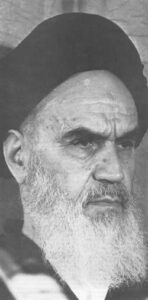
Qadhafi’s behavior has seemed so extreme that the West has tended to dismiss him as being of unsound mind. On similar grounds, it has paid little attention to the words of the Ayatollah Khomeini, who last year led Iran, with a vengeance, into the “radical” camp. Indeed, in an interview this fall Khomeini did sound to Westerners a trifle crazy. “When we have been bitten by a snake, we are even afraid of a piece of rope,” he told Oriana Fallaci, “… and you have bitten us too much, and too long… We got many bad things from the West, a lot of suffering, and now we have good reason to fear the West, to keep our youth from getting too close to the West… We are afraid of your ideas and of your customs. Which means that we fear you politically and socially.” Such thoughts are not an aberration in contemporary Islam, and neither Qadhafi or Khomeini are unusual within the context of Islamic history. To dismiss them would be a mistake, because they are men who have much power to influence the destiny of the West.
In recent months, Khomeini’s Iran has been casting covetous glances at its neighbors, the “moderate” Arab emirates of the Persian Gulf. Under the Shah, the United States armed Iran for the purpose of protecting these tiny states, along with the oil that lay beneath them, from the distant threat of the Soviets, as well as from “radical” Iraq. The emirates generally follow the lead of Saudi Arabia in foreign policy. The Iranian shift, justified by Khomeini in the name of militant Islam, may be an index of a military momentum among the “radical” states, which can only make the potentiality for crisis with the West more acute.
The military option is secondary, however, compared to the power that the radical” camp already exercises over oil supplies. In themselves, Libya and Iran produce only a fraction-though a substantial fraction-of the oil the world consumes. But as long as Saudi Arabia chooses to limit its pumping to keep supplies at the edge of scarcity, the marginal producers have only to follow. This power nullifies the ceilings set in OPEC pricing agreements, which have scarcely been bargain offerings, and keeps the economic structure of the West in a constant state of uncertainty, if not outright disequalibrium.
That was the significance of the announcement by Libya and Iran on October 15 that they would unilaterally increase the price of their oil by 10 per cent. In itself, the raise was modest enough, at least compared to the 60 per cent that the OPEC countries together awarded themselves last June. But “moderate” Kuwait, while delivering a lecture to the West on the need for conservation, has already announced that it will match the 10 per cent advance, and Saudi Arabia followed up be revealing that it will cut production in January by a million barrels a day, more than a tenth of what it has been pumping. Conservation is no doubt imperative, but these actions make clear that, whatever austerity the West imposes on itself, the Islamic world- “radicals” and “moderates” in step-have it within their power to frustrate the pursuit of international economic equilibrium.
I have heard wishfully thinking Israelis argue that if the West can only hold out until the end of the century, the destructive potential of the Islamic world will have been dissipated. By then, according to this theory, the West will be more than amply supplied with alternate sources of energy- nuclear, solar, thermal and the rest-and Islam will sink back into the torpor form, which it just recently emerged. Perhaps the technological calculations of these Israelis are correct, but I suspect their vision of the future is mistaken. The Islamic world can also do arithmetic, and the closer the West comes to the elusive goal of energy independence, the more impatient the “radical” states will be for the apocalypse. Faced with a return to relative impotence, I suspect that their “moderate” brothers will follow them.
In fact, it seems clear that we are already well into a period in which the Cold War has been superceded by a three-cornered struggle between the worlds of the West, of Communism and of Islam. Some time ago the West devised a strategy, called “deterrents” for dealing with the weaponry of the Communist bloc, and for a third of a century the rivalry has been at a standoff. But the West has not, by any means, taken the measure of the newer menace. The oil weapon, by a curious irony, threatens to prove more devastating than all the Communists’ nuclear bombs. A cocky Khrushchev once said to the West, “We will bury you.” Unless the West can respond more effectively to the oil arsenal, his boast may be realized by Islam.
©1979 Milton Viorst
MILTON VIORST is studying Zionist and Islamic Ideas in the Mid East Crisis on his APF fellowship.

